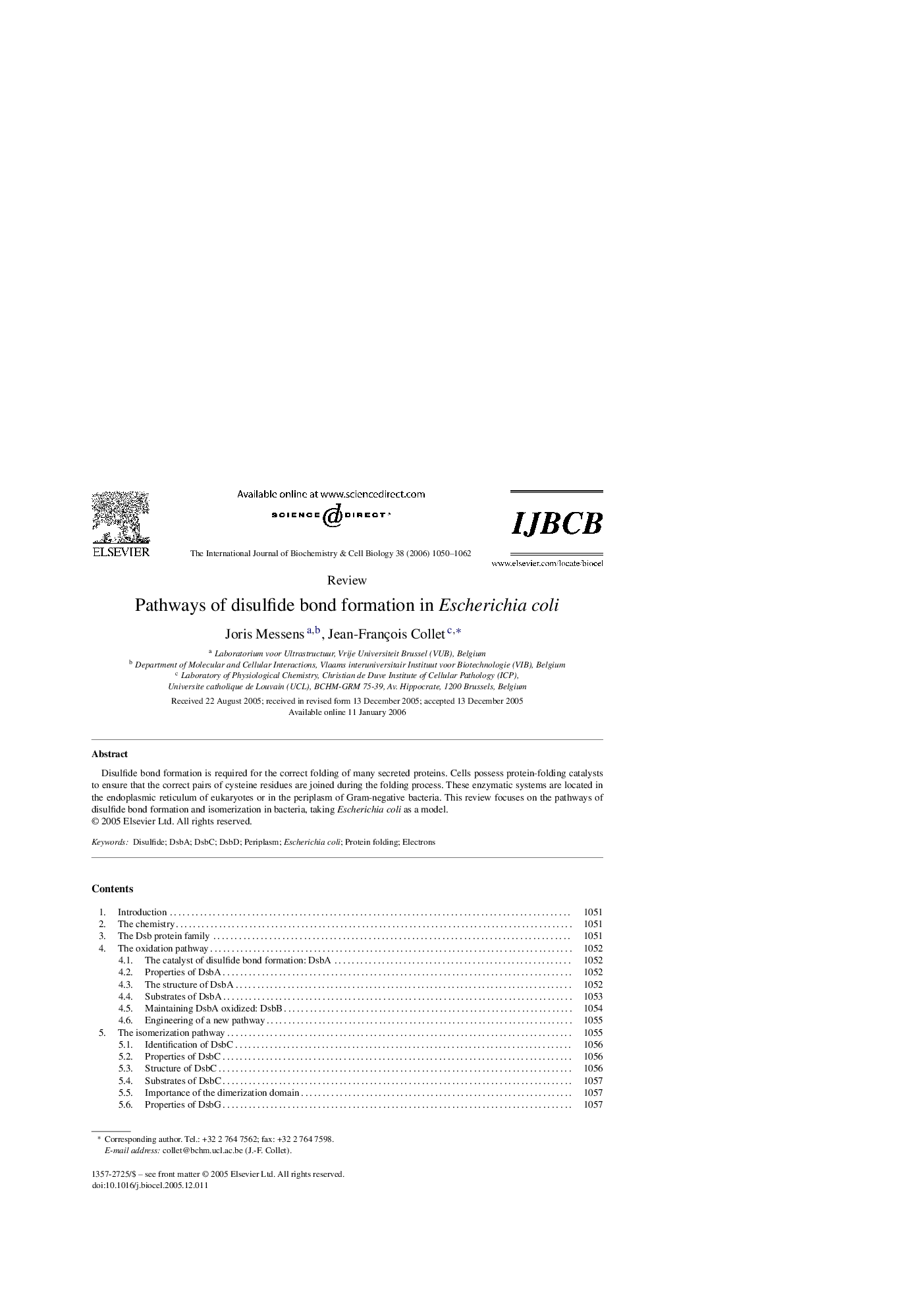| Article ID | Journal | Published Year | Pages | File Type |
|---|---|---|---|---|
| 1984506 | The International Journal of Biochemistry & Cell Biology | 2006 | 13 Pages |
Abstract
Disulfide bond formation is required for the correct folding of many secreted proteins. Cells possess protein-folding catalysts to ensure that the correct pairs of cysteine residues are joined during the folding process. These enzymatic systems are located in the endoplasmic reticulum of eukaryotes or in the periplasm of Gram-negative bacteria. This review focuses on the pathways of disulfide bond formation and isomerization in bacteria, taking Escherichia coli as a model.
Related Topics
Life Sciences
Biochemistry, Genetics and Molecular Biology
Biochemistry
Authors
Joris Messens, Jean-François Collet,
